Africa is a powerhouse of resources and innovation. With 54 countries on the continent, much growth and development have been witnessed in recent years. Some countries have risen above their expected growth rate performance, while others keep struggling with poor economies. Discover what's the richest country in Africa below.

The best economies in Africa belong to the richest countries on the continent. These economies thrive because of precious metals, fertile soil, excellent agricultural climate, and water bodies. This list was compiled using the GDP of every country, which means the total goods and services produced by a country.
What's the richest country in Africa?
The top 20 wealthiest countries in Africa by the GDP are:
| Country | Gross Domestic Product (GDP) |
| Nigeria | $440.83 billion |
| South Africa | $419.01 billion |
| Egypt | $404.14 billion |
| Algeria | $163.04 billion |
| Morocco | $142.87 billion |
| Ethiopia | $111.27 billion |
| Kenya | $110.35 billion |
| Ghana | $75.59 billion |
| Cote D'Ivoire | $68.845 billion |
| Tanzania | $67.84 billion |
| Angola | $67.40 billion |
| Democratic Republic of Congo | $55.35 billion |
| Tunisia | $46.67 billion |
| Cameroon | $45.34 billion |
| Libya | $42.82 billion |
| Uganda | $40.53 billion |
| Sudan | $34.33 billion |
| Zimbabwe | $28.37 billion |
| Senegal | $27.63 billion |
| Zambia | $22.15 billion |
Top 20 best economies in Africa
Despite wealth disparities in several African countries, there is a lot of wealth to be found. Some countries are even ranked in the lists of the most powerful. Here is a list of the most prosperous African countries, according to World Bank's 2021 GDP publication:
1. Nigeria - $440.83 billion
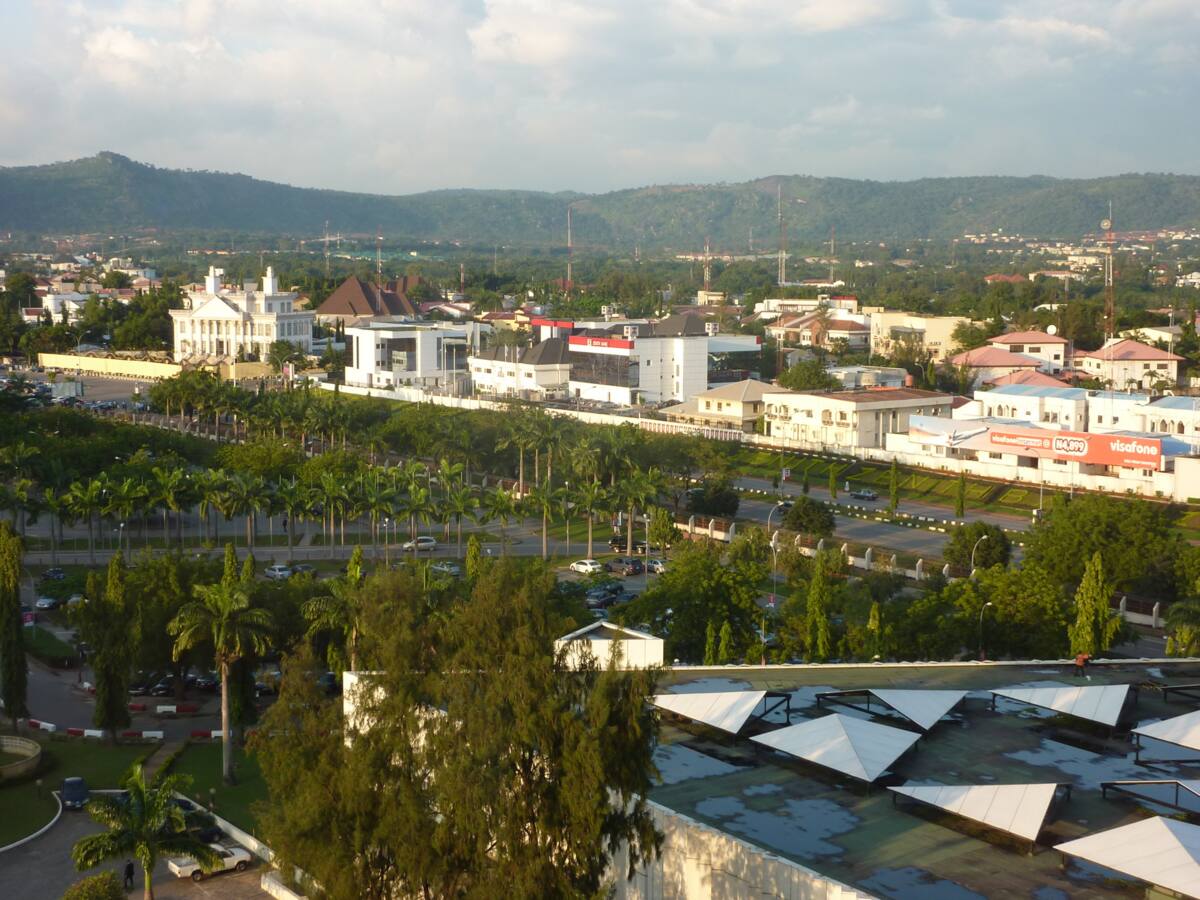
- Capital: Abuja
- Official language: English
- Dialing code: +234
- Population: 211.4 million (World Bank, 2021)
- Currency: Nigerian Naira
- Gross domestic product: 440.83 billion USD (World Bank, 2021)
Nigeria has dominated the list of richest countries in Africa for over half a decade. They are bestowed with bountiful natural resources like crude export. Nigeria produced over 1.4 million barrels of oil daily in 2021. Apart from oil, the state produces natural gas, limestone, niobium, lead, arable land, tin, iron ore, and zinc.
2. South Africa - $419.01 billion
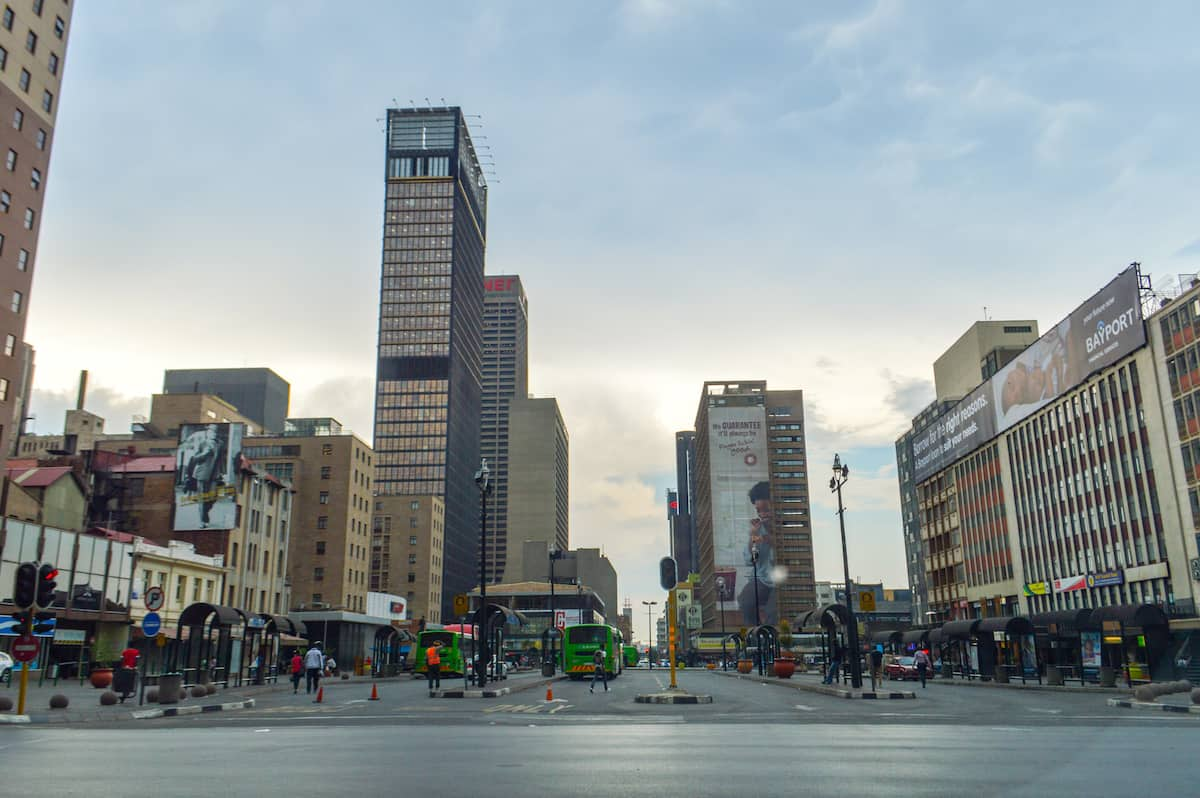
- Capitals: Cape Town, Pretoria, Bloemfontein
- Official languages: Afrikaans, English, Southern Sotho, Xhosa, Zulu, Northern Sotho, Venda, Tswana, Tsonga, Ndebele, Swati
- Dialing code: +27
- Population: 60.04 million (World Bank, 2021)
- Gross domestic product: 419.01 billion USD (World Bank, 2021)
South Africa holds the second position when it comes to African countries with the highest GDP value. The nation's financial and manufacturing sectors are among the best in Africa. Its main exports include gold, platinum metals, and iron ore. South Africa's most significant iron ore trade partner is China, and most of Africa's wealthiest people come from Mzansi.
3. Egypt - $404.14 billion
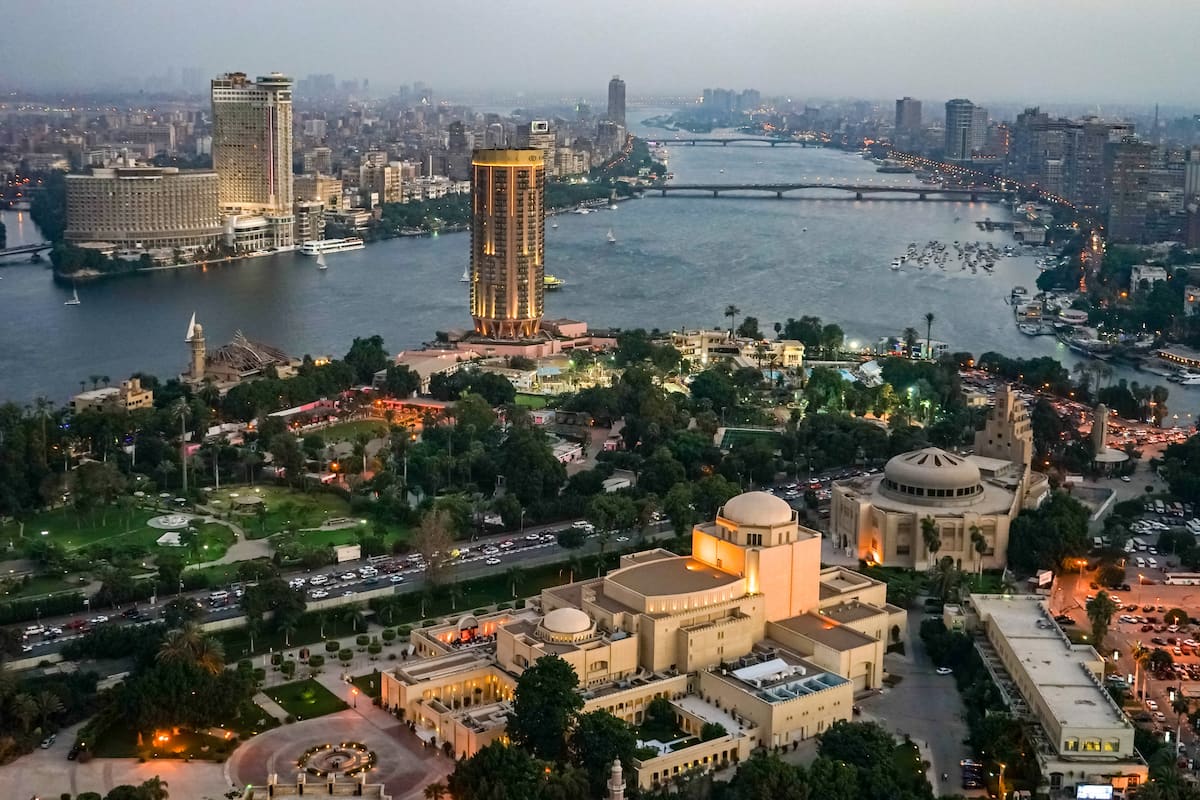
- Capital: Cairo
- Official language: Arabic
- Dialing code: +20
- Currency: Egyptian Pound
- Population: 104.3 million (World Bank, 2021)
- Gross domestic product: 404.14 billion USD (World Bank, 2021)
Egypt has been working hard towards positive economic growth and aims to become the richest country in Africa. The state focuses on wholesale and retail trade, construction, tourism, and gas extractives. With a current population of over 104 million, Egypt is growing a steady GDP.
4. Algeria - $163.04 billion

- Capital: Algiers (El Djazaïr)
- Official languages: Arabic, Standard Algerian Berber
- Dialing code: +213
- Currency: Algerian Dinar
- Population: 44.62 million (World Bank, 2021)
- Gross domestic product: 163.04 billion USD (World Bank, 2021)
The state's rich natural resources, like oil and natural gas, enable them to achieve enormous economic growth despite frequent political instability. Its non-hydrocarbon sector is the most affected by political uncertainty and corruption. Sluggish growth in the hydrocarbon sector contacted the country's economy by 6.5% and 7.7% in 2018 and Q1-2019, respectively.
5. Morocco - $142.87 billion
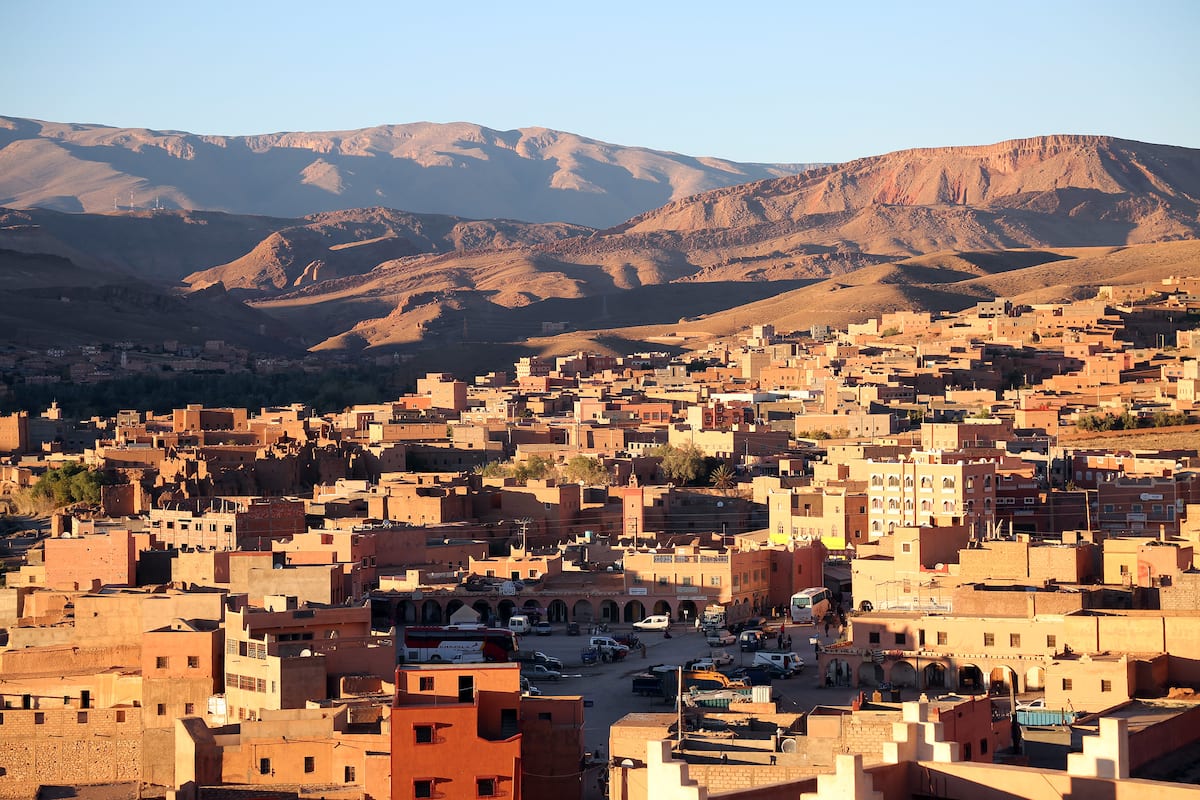
- Capital: Rabat
- Official languages: Arabic, Standard Moroccan Berber
- Currency: Moroccan Dirham
- Population: 37.34 million (World Bank, 2021)
- Gross domestic product: 142.87 billion USD (World Bank, 2021)
Morocco's GDP slowed to 2.7 per cent, unlike the estimations given by the World Bank. The country depends on agriculture, industry, and other personal services. Before the COVID-19 pandemic, the country was expected to estimate a 3.3 per cent growth rate between 2020 and 2021 due to its automotive industry, and this was to increase its plant production.
6. Ethiopia - $111.27 billion

- Capital: Addis Ababa
- Official languages: Amharic, Somali, Oromo, Tigrigna, Afar
- Dialing code: +251
- Currency: Ethiopian Birr
- Population: 117.9 million (World Bank, 2021)
- Gross domestic product: 111.27 billion USD (World Bank, 2021)
Ethiopia's GDP for 2021 was estimated to experience 8% growth. The nation's prime minister spearheaded and launched an economic reform forum to improve their economy. However, challenges such as political and social instability and consumer inflation could slow the GDP.
7. Kenya - $110.35 billion

- Capital: Nairobi
- Official languages: English, Swahili
- Dialing code: +254
- Currency: Kenyan Shilling
- Population: 54.99 million (World Bank, 2021)
- Gross domestic product: 110.35 billion USD (World Bank, 2021)
Kenya has been recording significant growth in the Sub-Saharan region. It had an economic growth of over 6 per cent in 2019, resulting from political stability, favourable laws for foreign inventors, and other factors. Its strongholds, agriculture, technology, and financial services, make it one of the best economies in Africa.
8. Ghana - $75.59 billion

- Capital: Accra
- Official language: English
- Dialing code: +233
- Currency: Ghanaian Cedi
- Population: 31.73 million (World Bank, 2021)
- Gross domestic product: 77.59 billion USD (World Bank, 2021)
The state is home to exports like crude oil, gold, cocoa, and timber. The country's growth rate was pegged at about 4.0 per cent for 2021, and its economy has taken some time to recover from the COVID-19 pandemic.
9. Cote D'Ivoire - $68.845 billion
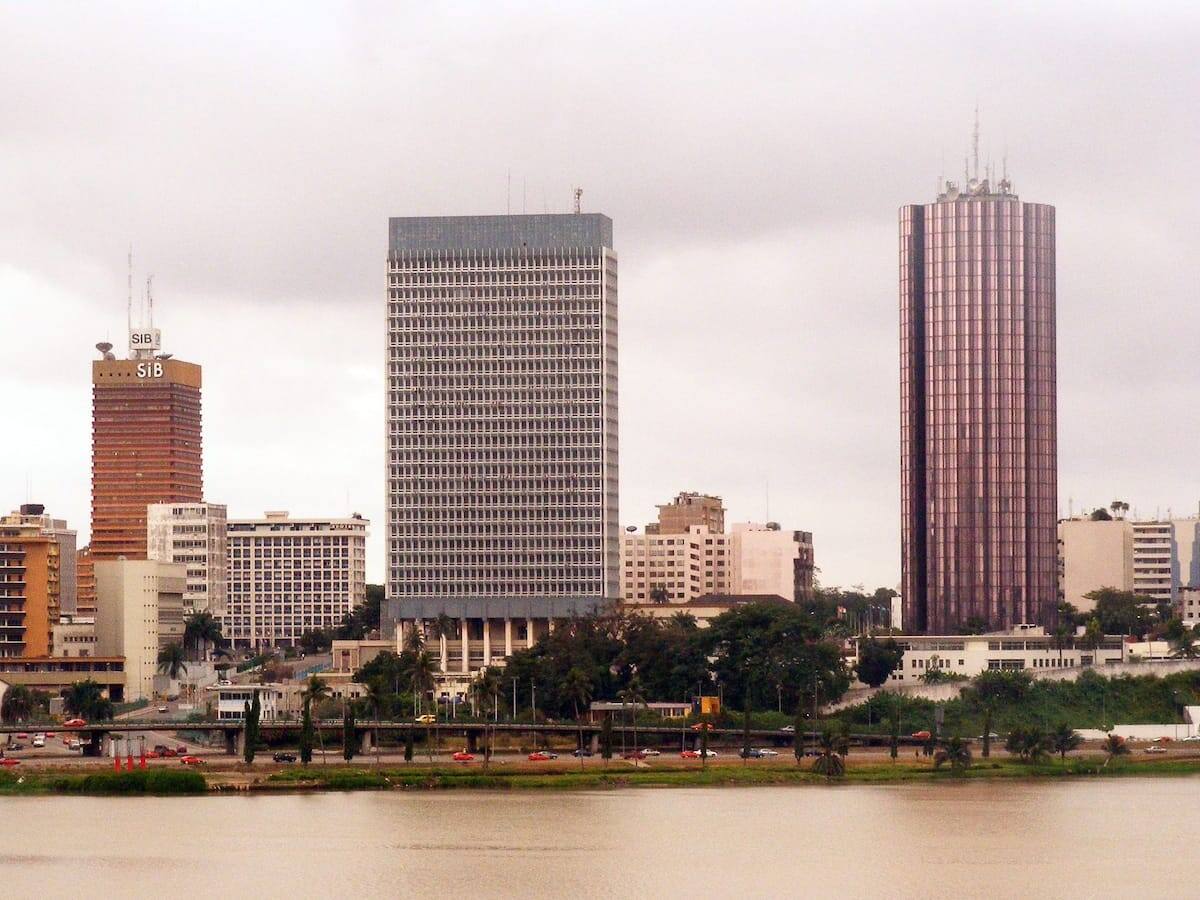
- Capital: Yamoussoukro
- Official language: French
- Dialing code: +225
- Currency: West African CFA franc
- Population: 27.05 million (World Bank, 2021)
- Gross domestic product: 70.04 billion USD (World Bank, 2021)
With an estimated population of over 27 million people, Cote D'Ivoire is a relatively large country. It is one of the world's largest exporters of raw cashew nuts and cocoa. They also export oil and boast a large manufacturing sector. As a result, the economy was expected to grow at 6.2% in 2021.
10. Tanzania - $67.84 billion
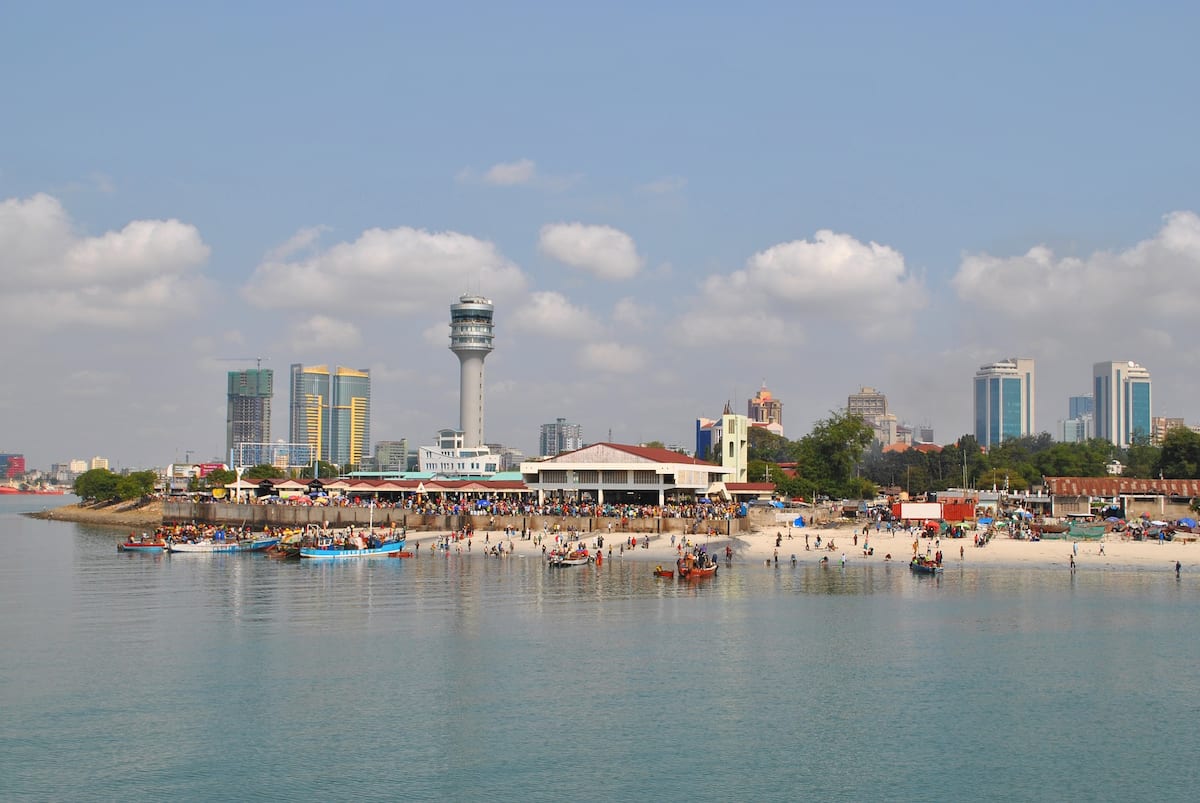
- Capital: Dodoma
- Official language: Swahili
- Dialing code: +255
- Currency: Tanzanian Shilling
- Population: 61.5 million (World Bank, 2021)
- Gross domestic product: 67.84 billion USD (World Bank, 2021)
With a growing population of over 60 million people, the state's GDP is estimated to have an economic growth rate of 4.1 per cent by 2021. This follows from various investments in the country's tourism industry, among other private and government efforts. Besides, the country exports cashew nuts, gold, cotton, and coffee.
11. Angola - $67.40 billion
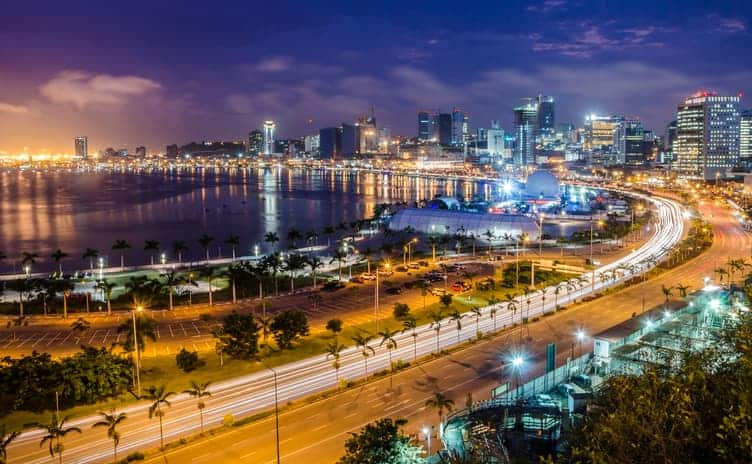
- Capital: Luanda
- Official language: Portuguese
- Currency: Angolan Kwanza
- Population: 33.93 million (World Bank, 2021)
- Gross domestic product: 67.4 billion USD (World Bank, 2021)
Angola has been improving its structural and political reforms to balance its economy. However, it still has to recover from a negative 0.7 in its 2021 GDP. By 2022, it is estimated to make a positive leap of 2%. With more than 32 million people, Angola is rich in oil and has received massive aid and GDP growth plans from the IMF and World Bank.
12. Democratic Republic of Congo - $55.35 billion
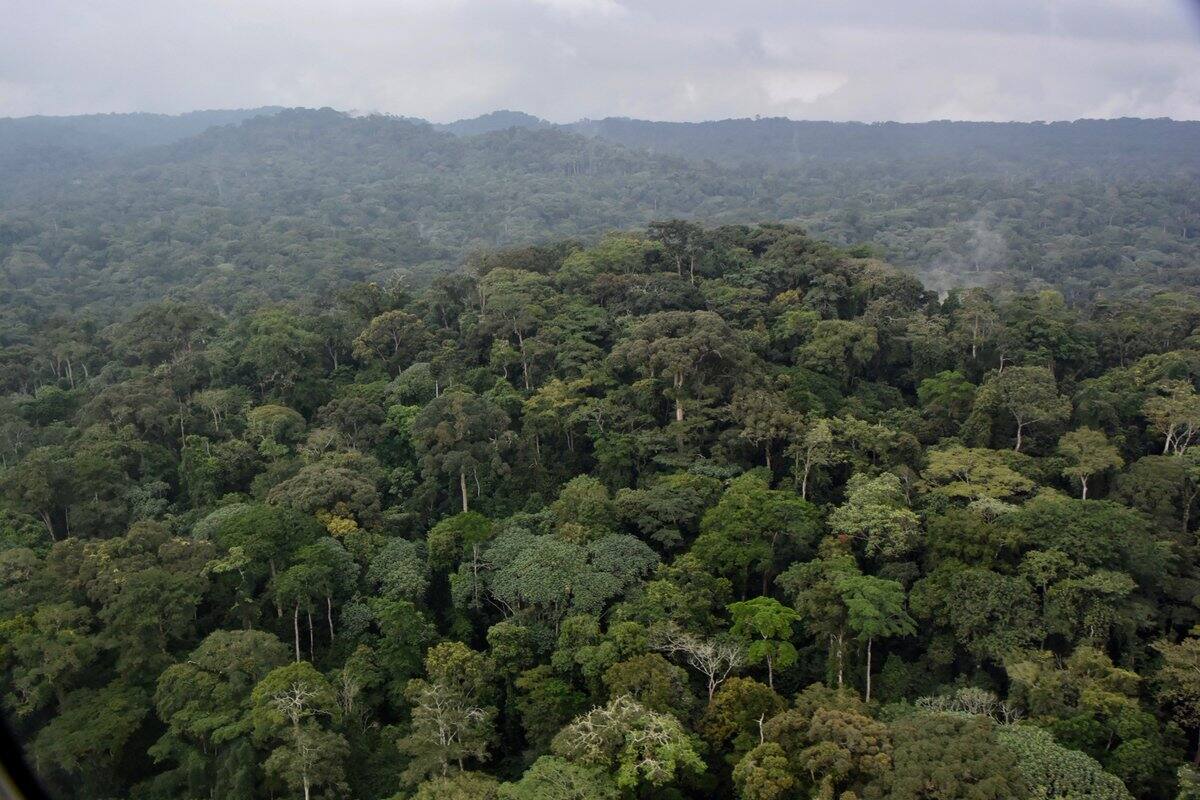
- Capital: Kinshasa
- Official languages: French, Lingala, Swahili, Kongo, Luba-Kasai
- Dialing code: +243
- Currency: Congolese Franc
- Population: 92.38 million (World Bank, 2021)
- Gross domestic product: 55.35 billion USD (World Bank, 2021)
DRC's minerals and other factors put it on this list of countries with the highest GDP per capita in Africa. At the time of its independence in 1960, DRC was the second-largest economy in Africa after South Africa. Corruption, war, and political instability have derailed the country's growth. DRC's economy was expected to grow at 1.2 per cent in 2021, following a disastrous experience in 2020 due to the COVID-19 pandemic.
13. Tunisia - $46.67 billion

- Capital: Tunis
- Official language: Arabic
- Dialing code: +216
- Population: 11.94 million (World Bank, 2021)
- Gross domestic product: 46.67 billion USD (World Bank, 2021)
Tunisia is one of the smallest countries, with a population of over 11 million people. They are giants in exports of oil, phosphates, agricultural food products, car parts manufacturing, and tourism. As a result, the economy experienced a 16% GDP increase in the second quarter of 2021.
14. Cameroon - $45.34 billion
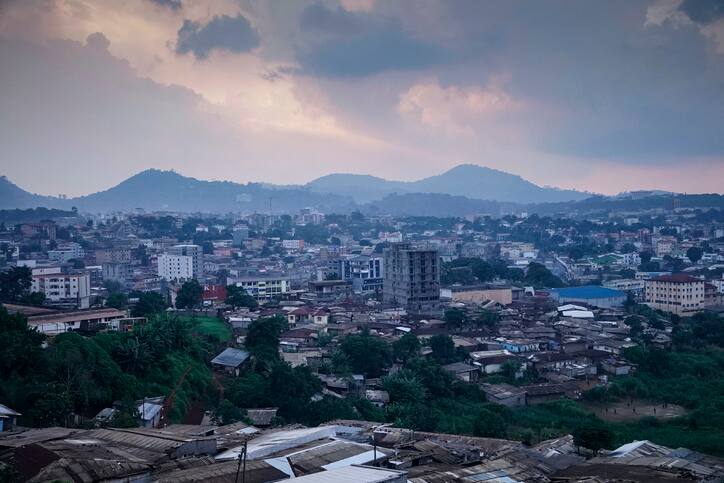
- Capital: Yaoundé
- Official languages: French, English
- Dialing code: +237
- Currency: Central African CFA franc
- Population: 27.22 million (World Bank, 2021)
- Gross domestic product: 45.34 billion USD (World Bank, 2021)
With over 25 million people, Cameroon has one of the best primary commodity economies in Africa. Just like DRC, the nation had one of the most prosperous economies in Africa after independence. Following an economic decline of about 2.8 per cent in 2020, Cameroon was expected to improve its GDP by 3.5 per cent at the end of 2021.
15. Libya - $42.82 billion
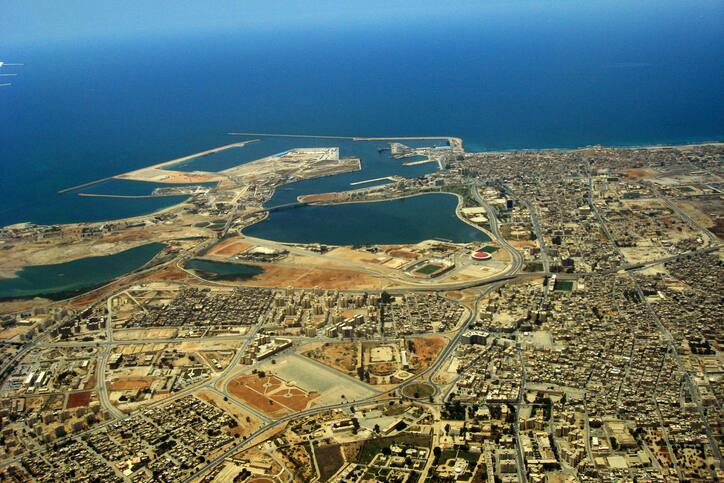
- Capital: Tripoli
- Official languages: Arabic, Modern Standard Arabic
- Currency: Libyan Dinar
- Population: 6.959 million (World Bank, 2021)
- Gross domestic product: 42.82 billion USD (World Bank, 2021)
Libya is doing well for itself, with a population of over 6.9 million people. Moreover, the country has been striving towards an improved economy since the end of Ghadaffi's regime and the effect of the Coronavirus pandemic in 2020. As a result, the country's future looks good, and its GDP growth for 2021 is estimated at over 50%.
16. Uganda - $40.53 billion

- Capital: Kampala
- Official languages: Swahili, English
- Dialing code: +256
- Currency: Ugandan Shilling
- Population: 47.12 million (2021) World Bank
- Gross domestic product: 40.53 billion USD (World Bank, 2021)
Uganda's population is over 47 million, and the country's economy thrives on agriculture. This economic disposition results from a moderately favourable climate for crops and livestock production. Like most African countries, Uganda suffers a host of economic impediments that range from political instability to poor financial decisions and resource management.
17. Sudan - $34.33 billion
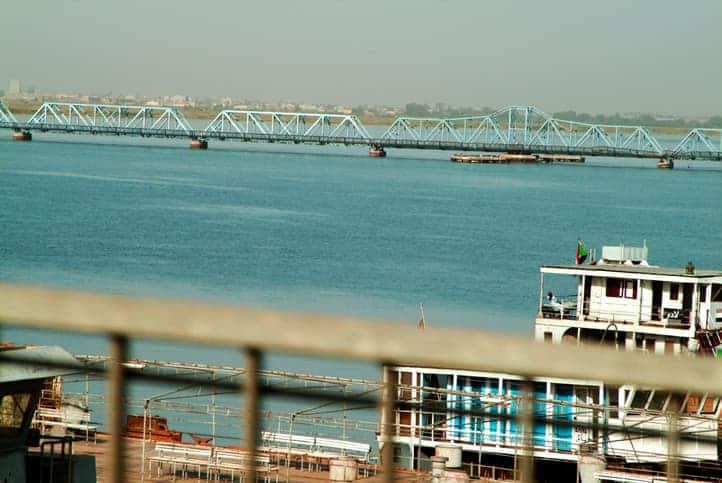
- Capital: Khartoum
- Official languages: Arabic, English
- Dialing code: +249
- Currency: Sudanese pound
- Population: 44.91 million (World Bank, 2021)
- Gross domestic product: 34.33 billion USD (World Bank, 2021)
Sudan shares borders with Libya, Chad, South Sudan, Ethiopia, and Eritrea. South Sudan broke away from it in 2011 to become the 54th independent African country. Most of Sudan's years have been burdened with conflicts, drastically affect their capacity to explore their economic potential.
18. Zimbabwe - $28.37 billion

- Capital: Harare
- Official languages: English, Shona, Tshwa, Xhosa, and 12 more languages
- Dialing code: +263
- Currency: United States Dollar
- Population: 15.09 million (World Bank, 2021)
- Gross domestic product: 28.37 billion USD (World Bank, 2021)
Zimbabwe is popularly known for its wildlife reserves and parks, and one of its beauties is Victoria Falls on the River Zambezi. Its population of over 15 million people provides human resources for economic activities like agriculture, mining, and manufacturing. Zimbabwe has 16 official languages: English, Sign language, Chibarwe, Kalanga, Ndau, Nambya, Shangani, Shona, Tonga, Tswana, Sotho, Ndebele, Khoisan, Chewa, Venda, and Xhosa.
19. Senegal - $27.63 billion
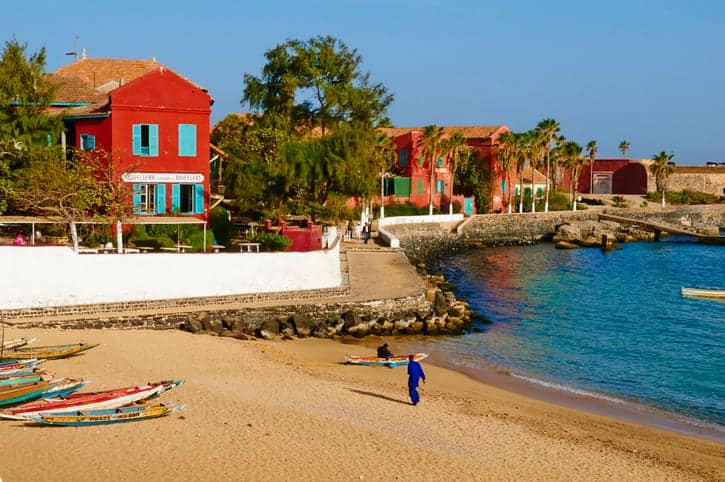
- Capital: Dakar
- Official language: French
- Dialing code: +221
- Currency: West African CFA franc
- Population: 17.2 million (World Bank, 2021)
- Gross domestic product: 27.63 billion USD (World Bank, 2021)
This country's economy depends on a wide range of activities, including tourism, fishing, construction, mining and agriculture. Senegal enjoyed economic growth under President Abdou Diouf's regime (1981 and 2000), for he implemented numerous privatization initiatives.
20. Zambia - $22.15 billion

- Capital: Lusaka
- Official language: English
- Dialing code: +260
- Currency: Zambian Kwacha
- Population: 18.92 million (World Bank, 2021)
- Gross domestic product: 22.15 billion USD (World Bank, 2021)
Zambia and Zimbabwe share the Victoria Falls tourist attraction site on the Zambezi River. Activities in the manufacturing, mining, and tourism drive the country's economy. Like most countries worldwide, Zambia suffered economically in 2020 due to COVID-19.
What are the richest nations in Africa?
The top 10 wealthiest countries in Africa by the GDP are:
- Nigeria
- South Africa
- Egypt
- Algeria
- Morocco
- Ethiopia
- Kenya
- Ghana
- Cote D'Ivoire
- Tanzania
What is the richest country in West Africa?
Nigeria has the largest economy in West Africa and the entire continent. The country is expanding its economy to manufacturing, communications and technology, financial services, and entertainment.
Why is Nigeria the richest country in Africa?
Nigeria's economy is supported by revenue from oil and gas reserves. It has the largest economy in Africa, but its huge population brings its GDP per capita down.
What is the most powerful African country?
Nigeria, Egypt, and South Africa are the three most powerful African countries. Nigeria has many natural resources, including oil; Egypt has a prime location and great military, while South Africa also has an excellent location.
Which country has the richest people?
Egypt has the wealthiest people in Africa. This country is home to the highest number of billionaires in Africa, including the six Egyptians whose combined net worth is $18.3 billion.
What is the richest country in Africa per capita?
According to World Bank's latest statistics, Seychelles is at the top of the list of richest African countries by GDP per capita. Its estimated population is 99,202 people, its 2021 GDP was USD 1.45 billion, and its GNI per capita was 29,800.
Now that you know what's the richest country in Africa, you can invest in them to grow your wealth and improve their GDP. Nigeria has the highest GDP, but Seychelles has the highest GNI per person.
READ ALSO: Africa's richest: 10 African billionaires and their net worth
We made a list of 10 African billionaires and their net worth. Nigeria's Aliko Dangote topped the list for the ninth consecutive year despite slightly dropping his net worth.
Is your country well represented in this billionaires list? Find out this and more by reading the article.
ncG1vNJzZmiaop6yp7jYZ5qoZqqWfHd9j25sZq%2BYlsFuvsicn56rpGKwsMHNramyZZGbv6qvwGZpaWpjY7W1ucs%3D